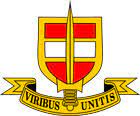Publications
Will Turkey Gamble with Ukraine against Russia?  By Yeghia TASHJIAN, Beirut-based regional analyst and researcher, columnist, "The Armenian Weekly”
By Yeghia TASHJIAN, Beirut-based regional analyst and researcher, columnist, "The Armenian Weekly”
In the past few years, Turkey has been gradually increasing its influence in Ukraine through trade and military cooperation amid escalating tensions between Moscow and Kyiv, challenging Moscow’s standing in the Black Sea region. The strategic cooperation between Ankara and Kyiv is not limited to political statements, but rather encompasses other important fields, such as the economy, security and defence industries. Moreover, relations between the two countries gained further impetus with Russia’s unification of Crimea in 2014 and reached their peak during the administration of Ukrainian President Volodymyr Zelensky, who assumed office in 2019. READ MORE
Publications
Successful Border Demarcation and Delimitation Process Crucial for a Final Peace Agreement
 By Fuad Shahbazov, Baku-based independent regional security and defence analyst
By Fuad Shahbazov, Baku-based independent regional security and defence analyst
The current border tensions between Azerbaijan and Armenia are not the first and likely not the last. Given this, a successful border demarcation/delimitation process could be a crucial point in paving the way for a final peace agreement between the two adversaries. Therefore, the resumption of direct peace talks is the only rational option.
Last month, shortly after the first anniversary of the 44-day Karabakh war between Azerbaijan and Armenia, saw a new phase of violent hostilities, and the fighting was far from conventional. Deadly skirmishes occurred on the Azerbaijan–Armenia's international border, in a place named Giziltapa (Tsitserrnakar) near Syunik province. According to the Ministry of Defence of Azerbaijan, the tensions flared up due to the Armenian Armed Forces' intensive artillery fires at the positions of the Azerbaijani Armed Forces. In response, the Armenian Ministry of Defence accused the Azerbaijani side of provocation, violating international borders, and spreading disinformation regarding the skirmishes. READ MORE
Publications
Risks and Opportunities of the Emerging South Caucasus Regional Order 
 Policy Recommendations from the 21st workshop of RSSC SG/PfP Consortium
Policy Recommendations from the 21st workshop of RSSC SG/PfP Consortium
The Regional Stability in the South Caucasus Study Group (RSSC SG) was proud to resume its activities in a face-to face format in Rome, 7-10 September 2021. On that occasion, the Study Group discussed and subsequently agreed on a number of policy recommendations.
The second Karabakh war was the catalyst for massive changes in the South Caucasus. Certainly, the new territorial realities fit better the internationally recognized territories of both countries, but important challenges remain, making it important for the RSSC SG to meet to spur thinking on the way forward. The conflict was also an opportunity for other regional actors. Georgia deployed uncommon diplomacy and peace-making skills in the aftermath of the combat phase between Armenia and Azerbaijan. While Georgia demonstrated its ability at being an effective bridge between the two belligerents, Russia established itself as the essential arbiter and guarantor of a fragile ceasefire, and of purveyor of security for new lines of demarcation between Armenia and Azerbaijan. Turkey has not waited and sided with Azerbaijan in achieving and securing the new territorial realities. READ MORE
Publications
Armenia's Options in the Face of Coercive Azerbaijani Tactics Are Limited  By Benyamin Poghosyan, PhD, Chairman, Center for Political and Economic Strategic Studies
By Benyamin Poghosyan, PhD, Chairman, Center for Political and Economic Strategic Studies
The developments of the last year proved that assessments according to which by taking some 8500 square km of territories in the 2020 Karabakh war, Azerbaijan will be satisfied and an era of peaceful development will be launched for Armenians, were highly exaggerated, and had little semblance to reality.
Since the end of the 2020 Karabakh war, Armenia has faced a new, harsh reality along its borders with Azerbaijan. Some in Armenia hoped that after taking back most of the territories which Baku lost during the first Karabakh war of 1992-1994, an era of regional peace would start in the South Caucasus, while Azerbaijan would agree to continue negotiations to fix the status of Nagorno Karabakh within its 1988 borders. Baku was quite quick to dampen such perceptions. Azerbaijan established an economic region of Karabakh in July 2021 and started to aggressively push forward the narrative that war had ended not only the conflict, but Nagorno Karabakh itself, and thus it was senseless to negotiate over the status of a non-existing entity. READ MORE
News
Russia to deploy new paratroop regiment on annexed Crimea Russia said on Wednesday it would deploy a new paratroop regiment on annexed Crimea by the beginning of December and complained about a British deal to boost Ukraine's navy which it said showed British military activities were expanding near its borders.
Publications
Parliamentary Procedures in Service of Democracy  By G.R. Malikova, Doctor of Legal Sciences, Professor at The Academy of the General Prosecutor’s Office of the Republic of Uzbekistan
By G.R. Malikova, Doctor of Legal Sciences, Professor at The Academy of the General Prosecutor’s Office of the Republic of Uzbekistan
The rule of law is ensured in a democratic society through a fair, impartial and effective administration of justice. This type of administration of justice requires independent and impartial judges and prosecutors who ensure the preservation of individual rights and freedoms as well as the maintenance of public order. Regardless of how different prosecutors’ systems are in different countries, they all have one element in common. Prosecutors must make decisions independently and carry out their responsibilities free of outside pressure or intervention, while adhering to the principles of separation of powers and accountability. As the President of the Republic of Uzbekistan Sh. Mirziyoyev rightly noted: “Our people can endure any difficulties, but they will not tolerate injustice”. In this regard, the essence of the mission for prosecutors is to ensure social justice and the rule of law.
READ MORE